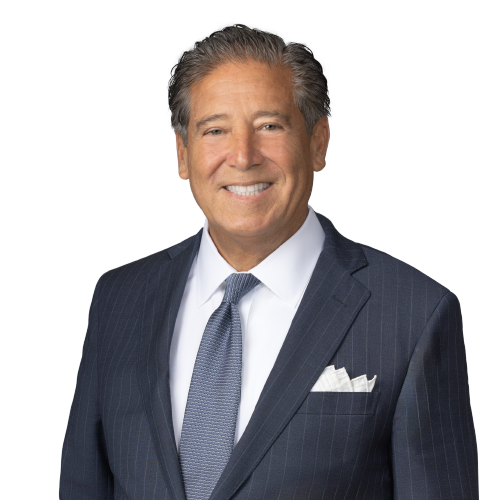Practice Makes Perfect: Mock Oral Arguments and Effective Oral Advocacy
Transcript:
Christine Davis: I'm Christine Davis, head of Carlton Fields' Tallahassee office and member of the firm's Appellate and Trial Support Practice Group. I am here today with our firm's CEO, Gary Sasso, who is also an accomplished courtroom advocate, and former judge Peter Webster, also a distinguished appellate advocate in our law firm. We are here to discuss mock oral arguments as a vital tool to prepare for oral arguments on appeal and in trial court proceedings.
Gary, who should consider using mock oral arguments? Inexperienced or junior lawyers? Or others, too?
Gary Sasso: Every appellate advocate should use a mock oral argument. I have never failed to do it - in fact, I will generally do two or three mock oral arguments - and I've never failed to change the argument I give in court as a result of the feedback and information I get during the mock oral argument. I think they are hugely important for everybody.
Christine Davis: Judge Webster, what's your experience?
Peter Webster: I agree with Gary. I think mock OAs are absolutely vital to preparation for oral argument on appeal and in many trial court proceedings, too. I participate as a judge in mock OAs regularly for some of the most experienced appellate advocates in the country. I can't imagine not taking advantage of this resource.
Christine Davis: Judge, why is a mock OA so valuable?
Peter Webster: There are several reasons.
First, an oral argument must be a conversation with the court. It's just not okay to read from notes or to deliver an oral argument from memory. The judges have already read the briefs. In oral argument, they want to get to the nut of the matter. They will likely have questions. This is your only chance to talk to them face-to-face, and it is absolutely essential that you cut through the fog in plain English. All this means that the appellate lawyer absolutely must feel comfortable talking about the case. You just can't get there by writing out notes. You have to get a feel for what it's like to talk about the case and to answer questions on the fly. A mock OA helps you do that.
Second, we all tend to fall in love with our case. We get immersed in our own point of view. A mock OA forces us to confront hard and even hostile questions on our feet - questions we might have pushed out of our minds because they don't fit with our view of the case. The best way to prepare to answer questions from the bench is to practice doing that, over and over, until we learn to be pithy, direct, and effective.
Third, by the same token, by the time most of us stand up to argue the case, we know the case too well and we have lost perspective on what others really need to know to rule in our favor. A mock OA helps us know whether arguments we absolutely love have any appeal at all to others. It can also help us decide how to organize the points we want to make, putting upfront the one or two points most likely to get traction with the court.
Christine Davis: Gary, what's your perspective on this?
Gary Sasso: I agree with Peter. Too many advocates see oral argument on appeal as a chance to deliver a written summary of their briefs, and it comes across exactly as that - a written summary of their briefs. It's dry, and the judges don't like it. They'll interrupt right off the bat and try to engage counsel in a conversation. The key is really to develop no more than two or three critical points to make on appeal, not two or three paragraphs, but points. They have to be very succinct - you have to boil the case down to the size of a pea and be able to deliver it very directly and succinctly. That takes a lot of work. It's got to look very simple, but it's very hard to do that. There's only one way to do it right, and that is to practice it out loud, over and over. You can't just sort of imagine it and deliver it perfectly on your first shot. And as Peter said, the important part of argument is answering questions from the judges, and that too takes some practice. One, you need to anticipate those, and a mock oral argument helps you get input from others who are not familiar with the case so you can anticipate questions you're going to get from the bench. Then again, you practice over and over answering very succinctly. You don't want to be fumbling for answers for the first time up there on the actual appeal. And then something else that's really important is that sometimes a panel member will take you off to a dead end and you get stuck there, and you really have to anticipate in advance how you're going to transition back to your main points. You've got to think about that, how you're going to do it, and practice it out loud over and over until you can track it in your brain.
Christine Davis: Gary, Is there only one way to conduct a mock OA?
Gary Sasso: No, there are actually lots of ways to do it, but there aren't many right ways to do it. Too often I see it botched, where even very experienced lawyers will say, "Let's do a mock OA," and you'll schedule it, and everybody shows up, and then they say, "Well, I was too busy to prepare the actual mock OA, so let's just sit around the table and talk through the case." For one reason or another, they just don't want to do the mock oral argument. But that's not a mock oral argument. There's a role for talking through a case, but the point of a mock OA is to simulate the real thing. There's no substitute for that because the idea is get you in that mindset, to track the answers in your head, and to practice it out loud over and over. And to do that well, and to do that right, you need experienced, capable panel members to help counsel get there.
Christine Davis: You mentioned, Gary, that you have often used more than one mock OA to get ready for an appeal. Why is that?
Gary Sasso: Well, practice makes perfect, and very few of us can nail anything the first time out. You've got to work over and over practicing out loud to kind of groove the argument in your brain, and the answers to the questions, and so on. And the more you do it, the more comfortable you get with the case, the more you know it, the more you own it, and the better you're able to do it effortlessly. You know, we're all biased, too. We think we have the argument down cold but we don't. So rolling it out with other people helps us understand that there are different perspectives, and it helps us modify the argument accordingly.
Christine Davis: Judge Webster, do you think there is any value to doing a mock OA earlier on in the briefing process?
Peter Webster: Absolutely. Every one of us who has ever handled an appeal from start to finish says at some point, "Gosh, I wish I had known when I was writing the initial brief what I knew by the time I got to delivering the oral argument." One way to get close to that is to conduct a mock OA before writing the initial brief. We know a good deal about the case even at that stage - we know enough to arm mock "judges" with enough information to ask hard questions. That process can put us in a much better position to write an effective initial or answer brief.
Christine Davis: Let's talk about mock oral arguments in trial court proceedings. Aren't those different from appeals? Judge Webster, do you think that a mock oral argument can really help in a trial court?
Peter Webster: Well sure, of course, trial proceedings are often very different from appellate oral argument situations. And sometimes it may be that the trial court situation may be too different to allow for preparation in the same way you would for an appellate oral argument. That would be particularly true for instance when a hearing might go on for hours or even days and involve extensive presentation or use of evidence, or where the trial judge isn't likely to be asking a lot of questions. But there are some legal arguments in the trial court that are a lot like appeals - for example, arguments on legal motions to dismiss, or motions for summary judgment, or even motions for class certification. In these situations, the trial lawyer might well benefit in the same ways from using a mock OA to get ready for the real thing. No matter what we do, we all get better with practice. It's just human nature. Few of us can claim to be perfect the first time out.
Christine Davis: I would like thank both of you for being with me today to discuss these very important issues. We have set out on the Carlton Fields' website the mock oral argument services we provide to address all of these considerations, and we describe how we are striving to make these services highly accessible to our clients in all ways. Thanks for listening.


